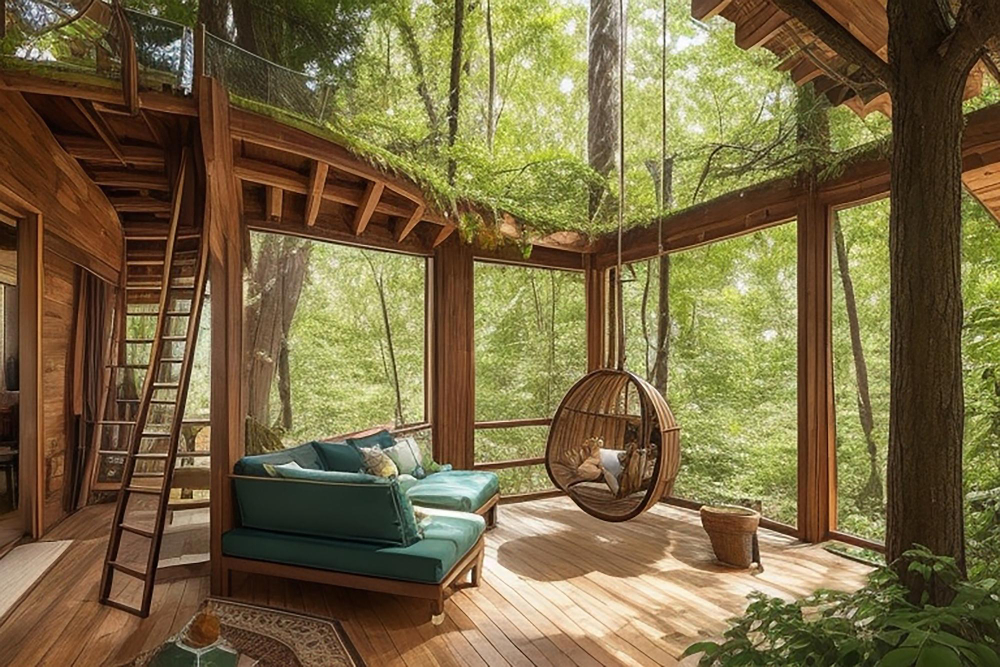Just what is Airbnb?
More than 220 nations worldwide have access to the Airbnb app, which allows users to list their properties for short-term rentals.
While renting out your home on Airbnb can be a lucrative and rewarding venture, and hosts receive a lot of help from the service, you may still encounter obstacles. Hosts can make a lot of money and make new friends, but they are at the mercy of the market and the whims of tourists.
Airbnb is a terrific method to test the waters in the hospitality and real estate investment businesses. Those who try it and like it may expand their company model to include more properties available for short-term rentals.

What’s the appeal of using Airbnb?
Many people choose Airbnb because it offers an exceptional and customized trip. People can earn extra money by renting out their homes or additional rooms to tourists, who would get a more genuine and local experience than in a hotel. In addition, guests can choose from various Airbnb listings at different price points.
1. Earning money without actively doing anything
Airbnb is a popular side business model since it allows users to choose their hours and make money in their spare time. Before the pandemic, an Airbnb host’s typical monthly income was $924. Now that more individuals are getting their shots and making summer travel plans, it should be a boon to the tourism industry.
Figure out monthly earnings with the help of a rental property calculator.
2. You can increase your nightly rate.
If you reside in a tourist hotspot, Airbnb can be more lucrative than traditional long-term rentals. Find out how much similar hotels and Airbnb’s in the region cost on average. You can use this to calculate a range of prices.
If you’re looking to rent an apartment in Seattle for a year, you can expect to pay around $24,000. However, in Seattle, the average Airbnb rental has a daily rate of about $150 and is rented out about 270 days annually. That’s a potential income of $40,500 annually in Seattle, or $16,500 more than the average Seattle apartment rental.
3. Increased adaptability
Long-term rentals need a minimum commitment of one year on the landlord’s part. On the other hand, Airbnb hosts have more leeway in determining the timing and duration of their rentals. Shorter occupancy periods result from them maintaining complete control over the property’s schedule.
4. Tenants who are in trouble won’t stay for long
Short-term rentals make dealing with problematic renters considerably simpler than long-term leases. Why? Since they only hang around for a short time.
If you list your property on Airbnb, you won’t have to deal with a problematic tenant for an extended period. And even if you end up with an inconvenient visitor, they will only be there briefly. In addition, you’ll be able to rate the guest and warn other Airbnb hosts about their actions.
5. Numerous choices
To become an Airbnb host, you need only provide a room, not an entire residence. Airbnb provides hosts with numerous customization possibilities. Rooms, basements, attics, houseboats, and even mother-in-law suites are all available for rent. For this reason, any kind of spare space could be ideal for Airbnb.
6.Free advertising
Listings on Airbnb have no associated cost, which is a significant perk. There is no fee for owners to list their homes on the site. To further bring the place to life, they can include a host profile, a property description, images, and more. In addition, by using Airbnb, owners gain access to the platform’s built-in marketing tools and perks.
Cons
1. increased danger
Before signing a long-term lease, most landlords will do a tenant screening, including a credit and background check. Airbnb does not mandate background checks for its users, despite the presence of guest reviews and immediate cash processing when booking a property.
2. Imprecise Pay checks
Income from long-term rentals is stable and continuous throughout the year. However, short-term rentals are more likely to be unoccupied during slow traffic. Airbnb hosts should expect certain months to be more profitable than others.
3. Intensive upkeep
Managing an Airbnb is a lot of work. Hosts are responsible for ensuring their guests have access to filled refrigerators and pantries, fully functional appliances and electronics, and a spotless home between bookings. You’ll be up against other hosts and hotels, so keeping your space in tip-top shape is essential to win reviewers and business.
4, More costly than standard leases
Airbnb hosts are responsible for all costs associated with running the business, including but not limited to energy, WiFi, cable, cleaning, and providing all necessary furnishings and supplies (including but not limited to linens, towels, and toiletries). Professional pictures, an interesting description, and high-quality furnishings will also help your item stand out. Landlords of long-term rentals are not obligated to furnish the house, but an Airbnb listing requires a well-designed area with the necessary furniture.
5. COVID things to think about
Despite the recent uptick, two thousand twenty-one travel numbers may be lower than average. If you’re new to Airbnb, the travel sector may not return to pre-pandemic levels for several months or years.
6.Airbnb fees
While listing your property on Airbnb is free, the app does charge hosts a service fee of at least 3% for each reservation. This covers the cost of processing the transaction.



